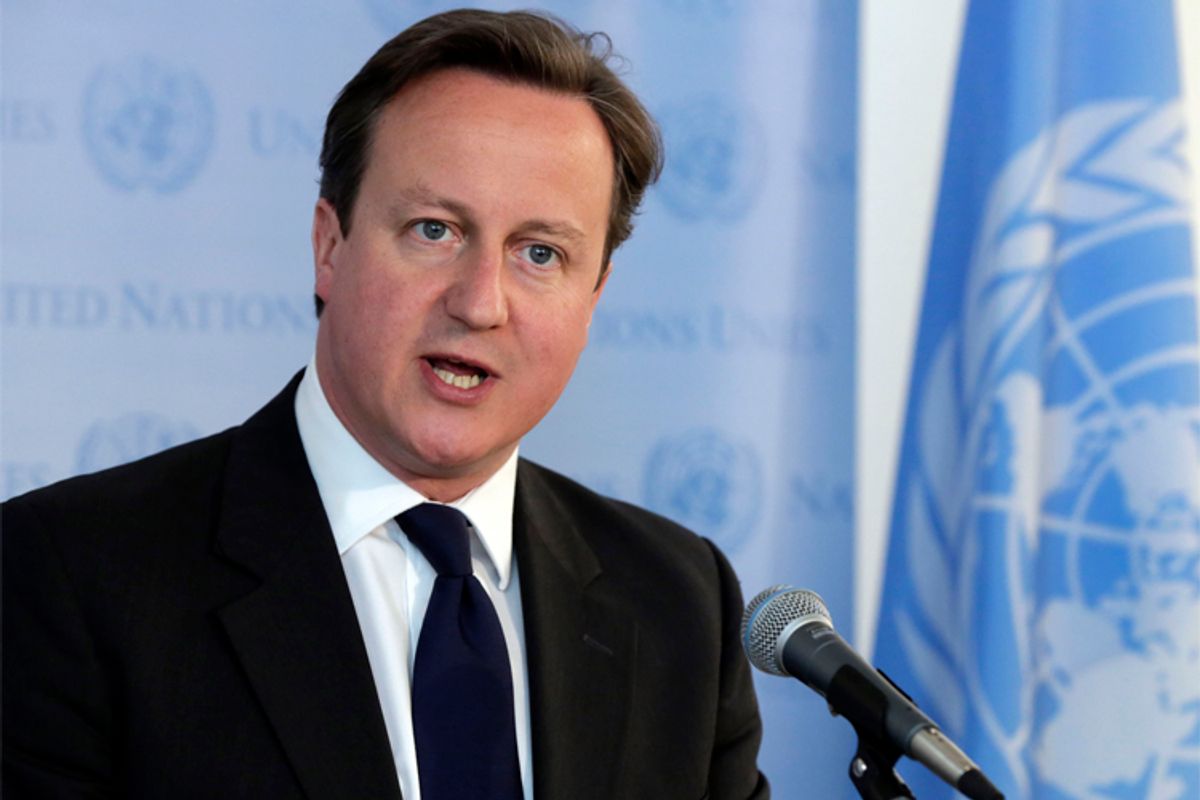 The International Consortium of Investigative Journalists (ICIJ), the German newspaper Süddeutsche Zeitung and more than 100 other media partners dropped the explosive “Panama Papers” leak on Sunday.
The International Consortium of Investigative Journalists (ICIJ), the German newspaper Süddeutsche Zeitung and more than 100 other media partners dropped the explosive “Panama Papers” leak on Sunday.
The trove is described by ICIJ, a global network of investigative journalists, as “11.5 million leaked files to expose the offshore holdings of world political leaders, links to global scandals and details of the hidden financial dealings of fraudsters, drug traffickers, billionaires, celebrities, sports stars and more.”
Mossack Fonseca, the Panama-based law firm that was exposed, has allegedly helped wealthy and powerful people hide and launder money, evading billions in taxes. The firm has “offices in more than 35 locations around the globe, and is one of the world’s top creators of shell companies, corporate structures that can be used to hide ownership of assets,” according to ICIJ. The papers together reveal information about more than 214,000 offshore companies connected to individuals in more than 200 countries and territories.
Here are six things you should know about the massive revelation:
1. This could be the biggest leak ever. The massive scale of the Panama Papers revelations is best captured in the following image, which was produced by Süddeutsche Zeitung.
2. This is the work of a courageous whistleblower. The following Twitter shout-out from NSA whistleblower Edward Snowden to the “John Doe” behind the Panama Papers says it all.
3. Whether or not the actions exposed in the Panama Papers were legal is not the most important question.
As journalists continue to pore over the trove of documents, many questions are centering on whether governments and corporations can be tied to illegal behavior. However, as Vox’s Matthew Yglesias argued on Sunday, the documents also offer “the most granular look ever at a banal reality that's long been hiding in plain sight. Even as the world's wealthiest and most powerful nations have engaged in increasingly complex and intensive efforts at international cooperation to smooth the wheels of global commerce, they have willfully chosen to allow the wealthiest members of Western society to shield their financial assets from taxation (and in many cases divorce or bankruptcy settlement) by taking advantage of shell companies and tax havens.”
Pivoting off of Yglesias’ observations, journalist Glenn Greenwald persuasivelyargued, “Proving that certain behavior is ‘legal’ does not prove that it is ethical or just. That’s because corrupted political systems, by definition, often protect and legalize exactly the behavior that is most unjust. Vital journalism does not only expose law-breaking. It also highlights how corrupted political and legal systems can be co-opted by the most powerful in order to legally sanction atrocious and destructive behavior that serves their interests, typically with little or no public awareness that it’s been done.”
4. A LOT of famous and powerful people are linked to the revelations. Here are just some of the world leaders whose family members and close associates are alleged to have been implicated—or have been directly tied themselves: British Prime Minister David Cameron, Ukrainian President Petro Poroshenko, Saudi Arabian King Salman bin Abdulaziz Al Saud, Pakistani Prime Minister Nawaz Sharif, South African President Jacob Zuma, Syrian President Bashar al-Assad, Chinese President Xi Jinping, Icelandic Prime Minister Sigmundur David Gunnlaugsson and Russian President Vladimir Putin.
5. There is a conspicuous lack of U.S. players named in the initial reporting. Adam Johnson, a contributing writer for AlterNet and FAIR, pointed out this absence on social media:
However, the editor of Süddeutsche Zeitung says there is more to come.
6. Don’t forget about the “free trade” deal between the U.S. and Panama.
Bearing similarities to the infamous NAFTA deal, the "United States-Panama Trade Promotion Agreement" was implemented in 2012.
According to Lori Wallach, the director of Public Citizen's Global Trade Watch, "Nearly five years after the U.S.-Panama Free Trade Agreement vote, the Panama Paper leak proves once again how entirely cynical and meaningless are the lavish promises made by American presidents and corporations about the economic benefits and policy reforms from trade agreements. The top promise about the benefits of the U.S.-Panama FTA was that it would end Panama’s financial crime secrecy protections and tax haven and money laundering activities, but this leak shows that, if anything, Panama’s outrageous financial crime facilitation has intensified while the FTA’s investor protections and official U.S. stamp of approval has increased inflows of dirty money to Panama."
"Now the same cast of characters is making equally outlandish promises of the benefits of the TPP," Wallach told AlterNet, "while, increasingly, past supporters of these pacts are joining long-term critics in saying that the TPP will not deliver economic gains for most Americans or improvement in labor, environmental or human rights policy among its signatories."


Shares